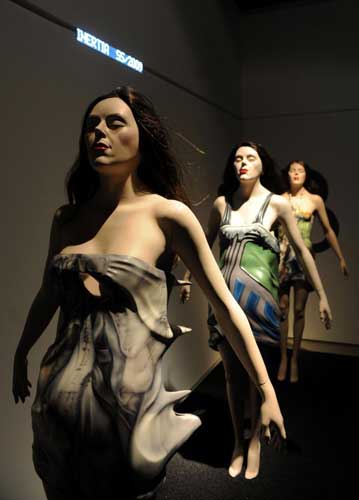Tom Sutcliffe: In acting, size isn't everything
The Week In Culture

The physicist Richard Feynman once gave a famous lecture called "There's Plenty of Room at the Bottom", in which he sketched out the possibilities of nanotechnology, long before the term itself had been invented. Sitting in the theatre the other night it briefly occurred to me that a version of Feynman's talk might be usefully addressed to young actors about to enter the profession. Although there isn't much room anywhere in acting, the only place you're likely to find much of it is lower down the cast list.
Feynman's point, though, was that large opportunity can be offered by the apparently negligible. And the reason his lecture had crossed my mind was because I found myself watching a really great performance in a relatively minor role. The actor was Jimmy Yuill, currently appearing at the Donmar Warehouse in Be Near Me – Ian McDiarmid's adaptation of the Andrew O'Hagan novel of the same name. Yuill plays two small parts in the play – a disgruntled colleague and a bishop, and though neither of them could be described as mere walk-ons, they are sufficiently small to allow him to double up with relative ease. And, on the night I went something startling happened just after the interval. The audience got giddy with pleasure.
I think it was because of Yuill as the bishop, giving a performance of episcopal self-regard that was so beautifully judged and so assuredly off-hand, that a little shiver went through the place. It was the casualness of the thing that impressed – the sense, actually quite rare in the theatre, that the person in front of you has absolutely no conception that an audience is present but is simply being himself. And then, a little later, Yuill did it again – giving court testimony as a music teacher, a quite different character, just as vividly present as the bishop had been.
This isn't commonplace in the theatre – partly because our appraisal (and our praise) tends to drift, under gravity, towards the central characters and the big names. But it happens more often than you might think, and can have a far bigger impact on the success of an evening (and a drama) than is ever recognised by pay-scale or status. It occurs in other media too. Watching Being Human the other night, BBC3's surprisingly bearable fantasy about a werewolf, a vampire and a ghost who share a flat in Bristol, I found myself perking up the moment Jason Watkins came on screen. He is an actor who almost invariably shows a lot of those higher in the billing how it should be done. Curiously, he was responsible the last time I felt an audience get that communal shock of recognition that they were seeing something special, when he took a relatively small part in Sam Shepard's play The Late Henry Moss.
What seems distinctly unfair is that such parts almost never get prizes. As Kaleem Aftab intriguingly reveals in today's paper, electoral politics long ago ensured that supporting-actor trophies almost never go to genuine supporting actors (see page 15). And since these performances may be what sustains a play as it is played – as opposed to what sells it – they should get a more durable recognition than the memories of the audiences. Awards organisers should think of Feynman: there's plenty of room at the bottom.
Rabbiting on in detail
Thinking about John Updike on the day his death was announced, I found myself remembering just one image from the treasure-hoard of fine details in his books. Sadly, I can't find it to quote it accurately, but it was a description of a character noticing the flecks of mica sparkling in a pavement as he walked on a sunny day, the gleam of light dancing and sparkling ahead, like a bow wave in front of an advancing boat. It's a perfect example of how his pictures always seemed to have double the pixellation of those of most of his contemporaries. I found myself thinking, too – less high-mindedly – of Updike's unflagging commitment to the depiction of the female vagina, a covert landscape to which his prose returned again and again through the years. He must have known the task could never be completed. But he apparently never got bored trying, a fact for which bookish, adolescent boys in the Seventies and Eighties had good reason to be grateful.
I went to the Hussein Chalayan exhibition at the Design Museum in a spirit of emperor's-new-clothes recalcitrance. A bunch of frocks, I thought sulkily – only to be bowled over by ... what exactly? Sculptures? Installations? Objects? Masterfully crafted, whatever they are, and, by turns, eerie, beautiful and evocative. They were also witty – an adjective frequently used, it can seem, as a euphemism for "silly". But this was the real thing – not a lack of seriousness, but seriously light on its feet. The only thing wrong was the solemnity of the exhibition guide, completely at odds with the spirit of what was on display. The emperor turned out to be sumptuously dressed, but his PR man must have been feeling the breeze.
Join our commenting forum
Join thought-provoking conversations, follow other Independent readers and see their replies
Comments